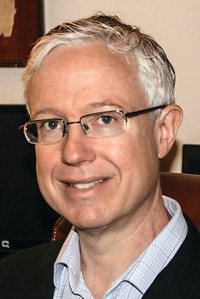Advertisement
Grab your lab coat. Let's get started
Welcome!
Welcome!
Create an account below to get 6 C&EN articles per month, receive newsletters and more - all free.
It seems this is your first time logging in online. Please enter the following information to continue.
As an ACS member you automatically get access to this site. All we need is few more details to create your reading experience.
Not you? Sign in with a different account.
Not you? Sign in with a different account.
ERROR 1
ERROR 1
ERROR 2
ERROR 2
ERROR 2
ERROR 2
ERROR 2
Password and Confirm password must match.
If you have an ACS member number, please enter it here so we can link this account to your membership. (optional)
ERROR 2
ACS values your privacy. By submitting your information, you are gaining access to C&EN and subscribing to our weekly newsletter. We use the information you provide to make your reading experience better, and we will never sell your data to third party members.
Careers
Continuing Education
ACS online courses offer convenience for the working chemist
by Linda Wang
September 7, 2009
| A version of this story appeared in
Volume 87, Issue 36
Chemists seeking additional training can find a host of continuing education courses through the ACS Office of Professional Education (proed.acs.org). What’s more, many of these courses are offered online.
Launched in 2003, ACS’s webcast courses complement ACS’s traditional short courses, which are taught classroom-style at various locations around the country.
Stephanie Rizk, manager of the webcast courses, says registrations for ACS’s online courses have increased as companies’ travel budgets have shrunk. In 2008, 420 chemists registered for 42 webcast courses, a 25% increase in participation over 2007, Rizk says.
The courses can benefit early-career chemists who want to beef up their résumé, as well as retired chemists who enjoy learning just for fun, Rizk says. Because of the economic downturn, she says, interest has surged from unemployed ACS members, who qualify for a 50% discount on courses. For those who are still employed, companies typically cover the cost of training.
The courses range from basic topics, such as “Essentials of Organic Chemistry,” to highly specialized ones, such as “Stimuli-Responsive Polymeric Films and Coatings.” Courses on effective technical writing, preparing scientific presentations, and fundamentals of patent law are also available.
The format is similar to a teleconference; students call in to connect with the instructor. They then follow along with the instructor’s slides, which they can access through a website. The courses are typically 90-minute live webcasts held weekly over a period of five to seven weeks.
Rizk says her office is always looking for new instructors. Unemployed chemists, for example, can design courses based on their expertise and then submit a proposal to become an instructor. Instructors can earn roughly $1,500 per course, she says, adding that experts are needed to teach courses on statistics, food and flavor chemistry, and personal care and consumer products chemistry.
Teaching online can be quite different from teaching in a classroom. “If I’m in a room with people, I can gauge pretty well who’s getting it or not just by looking at the expressions on their faces,” says Brian C. Smith, founder of Spectros Associates, who has been teaching ACS webcast courses since 2003. “On the Internet, I don’t get that feedback at all.” He compensates by asking more questions and challenging the class with impromptu problem sets.
“You have to be flexible and informal enough to say to the class, ‘Stop me when you want to ask a question,’ ” says Aline (Lindy) Harrison, who teaches courses on organic chemistry and technical writing.
Karen Tkaczyk, a self-employed scientific translator who has taken the technical writing course, enjoys the flexibility of the online courses. “It’s so nice not to have to get on an airplane and spend the time and money when you can just fit it in your normal routine.”
But just like in a real classroom setting, students have to participate. Tkaczyk asserts, “You get out of it what you put in.”






Join the conversation
Contact the reporter
Submit a Letter to the Editor for publication
Engage with us on Twitter